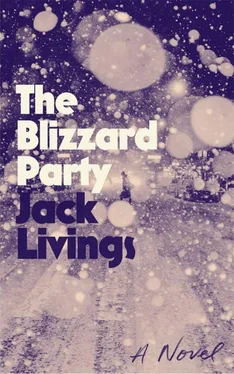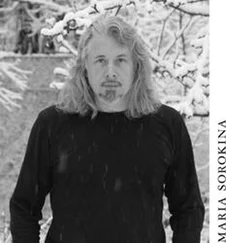When he traveled for work, I often wished his plane would go down. This was after we were married. I was still in my twenties and hadn’t yet developed the competencies that I assume would have allowed me to navigate a long marriage. I didn’t know why I wanted him to die. I only knew that I wanted a blank slate. I was getting a bead on it all when he disappeared. He could do a great French accent. He could roll bastard around in his mouth and I’d be in agony. I loved him and I wished he would vanish and he did.
After he disappeared, I told the counselor that I’d often wished he would die in a plane crash. She said I’d felt abandoned. She said I was angry at him for traveling. I said that a plane crash was cheaper than a divorce. Ha. You’re essentially a solitary person, she said, and I said, Yes, that’s true. She said, Do you feel guilty now for wishing that he would die in that manner? No, I said. It was just a fantasy, I said, an escape fantasy, and I knew that much even then. Okay, the counselor said. That’s probably what I would have told you. It’s a normal fantasy. You know, parents sometimes wish their children would be abducted. Well-adjusted, normal, decent people. Fleeting thoughts, the counselor said, but worth examining. I can imagine, I said. Sometimes, she said, as a reaction to overwhelming life events—the unpredictable nature of love, for instance—our psyches create scenarios that allow us to relieve the pressure. Sometimes that’s all we need, a stress valve. If you sometimes feel relief that he’s gone, that’s normal. It’s fine to feel that way. As valid as any other emotion. Do you ever feel that way?
Relieved? I said.
Yes, relieved, she said.
My counselor was named Lana and she was terrible.
* * *
Surely he’s easier to love retrospectively. Would we have stayed married if he hadn’t disappeared? Doesn’t matter. Do I still love him only because he’s gone? Doesn’t matter. Is his existence within me a form of love? Doesn’t matter. I’m well trained in the analysis of markets, art, literature, and I’m capable of accurately extracting motivations, intentions, and presuppositions from a wide range of people, and none of that matters, either. It’s all mechanics, gears and grease; the only thing that matters is the feeling itself. The how of feelings—even the why of them—is a distraction, a game for college kids reading Descartes, something for a neuroscientist to build a career on.
The ability to experience an emotion without labeling it—that’s what I’m talking about. I know it’s not cool to say this, but Vik is a living, breathing thing within my every feeling and my every action, and while I recognize that (as I have been told by a number of counselors) I do not have to allow loss to define me, I believe the righteous path is one of memorialization. Of course, I have some experience serving as a vessel for memories of the dead, and perhaps that has influenced my feelings on the matter. Perhaps I’ve chosen the comfort of the familiar.
How did it all start? Me, six years old, at a party, asleep on the Vornados’ guest bed, the coverlet imprinting my cheek and arm with arpeggios of pointillist nonsense, the TV accompanying my heavy, magnetic sleep, my brain dreamlessly emitting spindle waves, delta waves, my consciousness a receptive void. Vik deposited the old lawyer Albert Caldwell into that same room. After Vik left, Albert lay down next to me. He took my hand and he bestowed on me the archive of his life. I had within me a new landscape, both unusual and instantly familiar, as though I’d been on a dark trail all along, following his bootheels. I had become a file cabinet for Albert’s history.
So it would seem that Albert carved himself a snug little slot in my head. I have his memories, but the fog blurring his final year obscures his intentions. I can only speculate. Maybe he meant only to hold my hand, to establish a human connection as his final act on earth. Albert was a difficult man, short-tempered, intolerant, made wicked by the erosion of his reason. Yet it’s possible he meant me no harm. Albert, being Albert, would point out that intentionality is the only means of judging his actions.
For as long as I can remember, Albert has been with me. I know things about his family that even his children do not know. His life with Sydney. His life before Sydney. The smell of Langdell Hall, the sound of law students’ fingers on the pages of those old books. The terrible power his father held over him. The pervasive calm of standing among horses on the farm where he grew up. The infant faces of his children. I have questioned his surviving children, and I have known the answers before they’ve spoken.
We absorb our parents’ grief whether that grief is spoken or not.
The workmen across the street have finished their breakfasts and gone inside the building. They begin work at 8:00 a.m. Soon they will be on the roof, where they’ve been banging on the HVAC units all week. They will have the best view in the city, but there will be no gifs of the incident passed around social. No conspiracy theories will coalesce around mismatched metadata from one of their phones, somehow calibrated incorrectly, out of sync with central internet time, an outlier, a time traveler, a visitor from another dimension. They will deliver no eyewitness accounts to brisk reporters with sharply parted hair. No helicopters will arrive to provide the bird’s-eye view. No wailing fire engines at the curb. No one will claim to have seen black-suited men fleeing the building. But there will be reverberations. One of the workmen might inexplicably return to the religion of his childhood. One might begin a study of geology. Another might quit the trades and move to Jamaica. They will not know it, but they will bear witness to my act of genesis.
Poor, sweet Vikram Patel. A boy of thirteen, all wrists and ears, a good son, studious, generous with friends, helpful around his father’s office, solicitous of strangers in need, respectful of his elders, just the wrong package entirely. A calamity, when you come right down to it. It was on Vik’s arm that Albert Caldwell entered the stately lobby of the Apelles, whereupon the two found themselves on the rump of a mob, a steaming mass of humanity, everyone dripping with melting snow, their cross-country skis, poles, snowshoes, toboggans, sleds clattering and barking against the marble floor with each forward surge.
Everyone but Vik and Albert had assembled for a party. Everyone but Vik and Albert was wearing party-conducive vestment, genre choices informed by a murky matrix of personal politics, pharmaceutical proclivity, alma mater, what was on the closet floor from the not-so-distant New Year’s: gorilla suits, tuxedos, deerskins, accessories, and headgear straining the walls of plastic Fairway bags and waxed canvas backpacks—Viking horns, Coneheads, habits, the inevitable Afros, stovepipe hats, Iron Eyes Cody headdresses. Many had traversed great distances, their sufferings a sign of their devotion. Those from the east had braved the tundra of Central Park, those from the south, deep drifts, a persistent headwind. And those hearty souls who had descended from points north had embarked on a passage that would have ensured their murders on any other night of the year. They had come on foot across the frozen wastes of the city, and every last one of them was now jockeying for position at the elevator doors, each car of which could accommodate, in a configuration that would have pleased an orgy efficiency officer, twenty adults, give or take.
Albert was shivering with such violence that he appeared to be vibrating. Vik had only just met the old man. Had the two been better acquainted, he would have been suspicious of Albert’s acquiescent behavior. Oh, waters, said Albert. Oh, stars! These were the last words he ever spoke aloud. He had gone down through a trapdoor, vacated the premises, mentally speaking, while Vik pogoed in hopes of putting eyeballs on a doorman or porter, someone who could help. No surprise to him, a watchful kid, that the inside of so grand an apartment building was a complete nuthouse, but didn’t he expect a zookeeper or two, a uniform who might acknowledge him, even if only to ask what the hell he thought he was doing there? There had to be someone in charge.
Читать дальше












